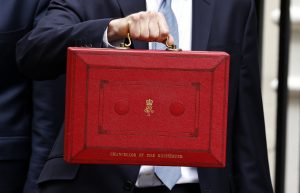9th November 2021
Digital Assets - Understanding Crypto Currencies

The rise of digital assets over the past few years will not have escaped anybody. Indeed, barely a week has passed without a news report covering bitcoin’s most recent surge in price to levels deemed absurd by all but the most ardent supporters. This is a new world that is little understood by most who do not operate within it. It is also, though, almost certainly going to become an important part of our future as the world continues towards full digitalisation.
This also feeds into the anti-government stance as crypto communities avoid a central regulator dealing with their transactions. Indeed, transactions cannot be cancelled nor frozen upon any government request even if there is suspicion of illegal activities such as fraud and money-laundering.
This also presents one of the main reasons sceptics have used to argue against such assets and is often used to explain the rapid rise in prices, being that a large proportion of trading in crypto assets is for the purpose of illegal activity.
The case for institutional involvement in crypto assets has been made largely based on assets such as bitcoin becoming a digital alternative to gold. This concept has gained traction particularly since the COVID-19 crisis began in early 2020. Crypto enthusiasts have argued that most major fiat currencies (for example the British Pound and US Dollar) are being damaged and devalued over the long haul because of plentiful global liquidity, unprecedented fiscal deficits, and soaring public sector debt ratios.
It is claimed that digital currencies can offer a hedge against uncertainty, currency debasement and/or hyper-inflation, similar to arguments made in favour of gold. There is little evidence to support this hypothesis though, with prices of cryptocurrencies gyrating wildly, with big booms and busts, and often with a high correlation to investor risk sentiment, which would suggest cryptocurrencies such as bitcoin are better defined as ‘risk assets.’
Disclaimer:
The opinions expressed in this update are those of A&J Wealth Management Limited only, as at 7th September 2021, and are subject to change.
The content of this publication is for information purposes and should not be treated as a forecast, research or advice to buy or sell any particular investment or to adopt any investment strategy. It does not provide personal advice based on an assessment of your own circumstances. Any views expressed are based on information received from a variety of sources which we believe to be reliable but are not guaranteed as to accuracy or completeness. Any expressions of opinion are subject to change without notice.
The tax treatment depends on your individual circumstances and may be subject to change in future.
Past performance is not a reliable indicator of future results. Investing involves risk and the value of investments, and the income from them, may fall as well as rise and are not guaranteed. Investors may not get back the original amount invested.












